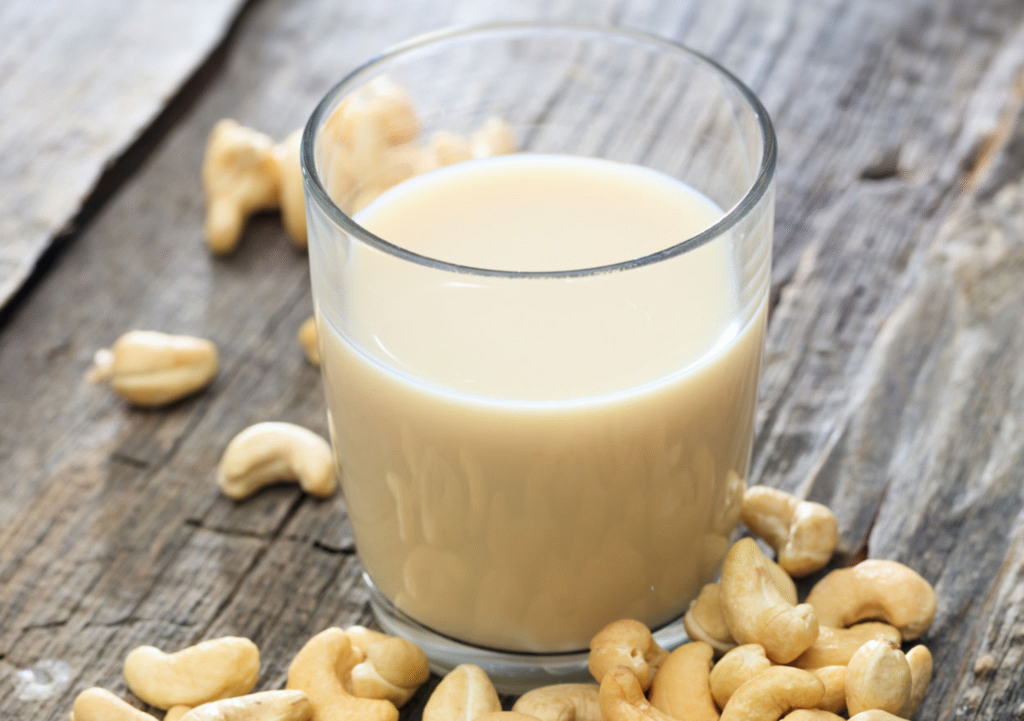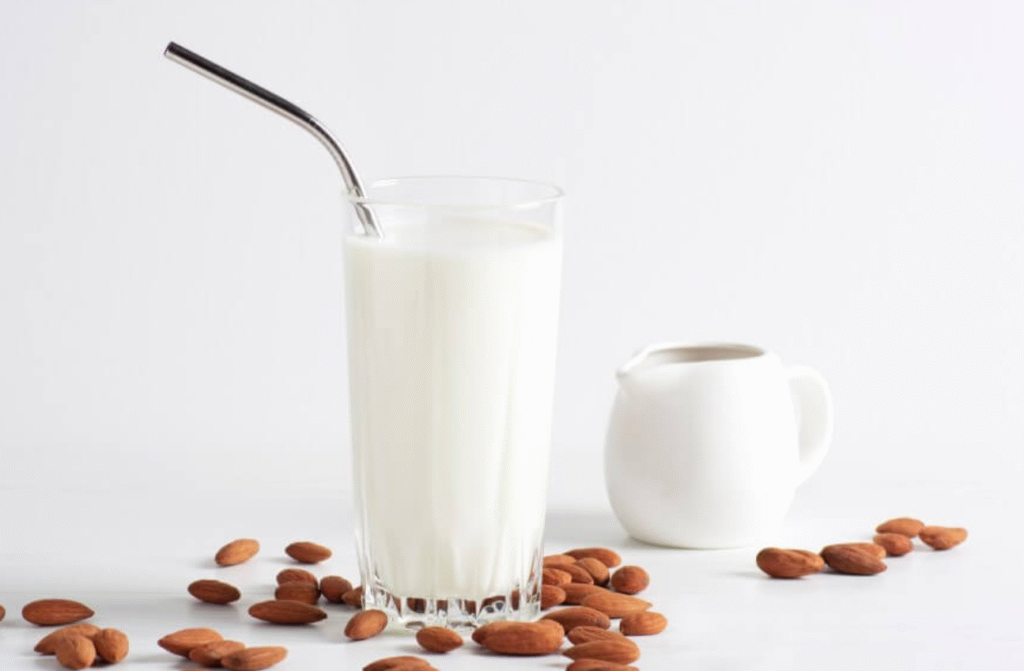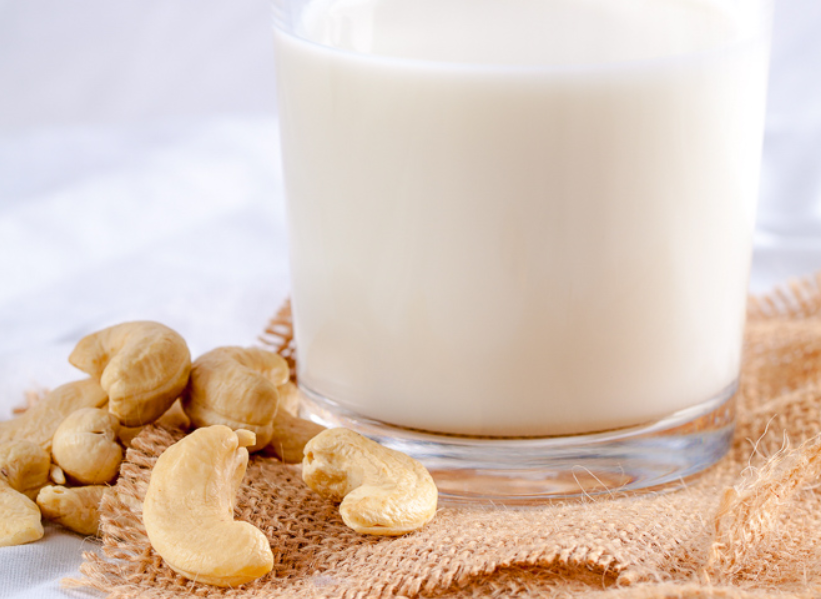Table of Contents
Are you confused about which type of milk is best for you? The decision between cashew milk and almond milk can be a tough one, with both products offering health benefits and different types of nutrients. But which one should you choose for the lifestyle that aligns with your goals and values? In this comprehensive buying guide, we’ll break down the differences between cashew milk and almond milk so you can make an educated choice on what’s right for your taste buds ––and your wallet!
What is Cashew Milk?

Cashew milk is a plant-based dairy alternative made from blending raw cashews with water, and sometimes sweeteners like dates or maple syrup. Cashew milk has a smooth and creamy texture, similar to traditional cow’s milk but without the cholesterol or saturated fat. It also provides a mild sweetness, which makes it popular for baking and cooking.
What is Almond Milk?

Almond milk is a slightly more versatile and widely available plant-based dairy alternative made from blending almonds with water. This beverage has a nutty flavor, but can be sweetened with dates or maple syrup to provide added sweetness. It’s great for baking and cooking and often used by people who are looking for an alternative to cow’s milk due to allergies or dietary concerns.
Nutrients
Macronutrient Content
Cashew milk and almond milk are both low in calories. A cup of cashew milk contains approximately 40-50 calories, while a cup of almond milk contains only 30-45 calories. Almond milk also has less fat than cashew milk; one cup of almond milk contains about 1.5g of fat compared to 4-5g for the same amount of cashew milk.
Micronutrient Content
In terms of micronutrients, almond milk contains more calcium and iron than cashew milk. Almond milk also provides two to three times the amount of Vitamin E that cashew milk does. Cashew milk, however, is higher in magnesium, phosphorus, and B-vitamins than almond milk.
Caloric Value
When it comes to caloric value, cashew milk is slightly higher in calories than almond milk. One cup of cashew milk contains 40-50 calories while one cup of almond milk contains only 30-45 calories.

Allergens & Intolerances Considerations
Cashew milk is a great choice for those who have allergies or sensitives to nuts. It’s also lactose-free and vegan-friendly, making it a popular option for those with dietary restrictions. Almond milk, on the other hand, can cause allergic reactions in some individuals due to its nut content.
Uses
Cooking/Baking Applications
Both cashew and almond milk can be used in cooking or baking applications. Cashew milk is generally preferred for savory dishes due to its mild flavor, while almond milk is often used in sweet recipes because of its nutty flavor and natural sweetness. Additionally, both types of milks can be used as a substitute for cow’s milk in baking and cooking recipes.
Desserts & Drinks
Cashew milk is a great choice for creamy desserts since it has a smooth and creamy texture. It can also be used as an alternative to cow’s milk in coffee or tea. Almond milk is a popular choice for sweet drinks like lattes or smoothies, thanks to its nutty flavor and natural sweetness.
Taste Comparison

Sweetness & Texture
Cashew milk has a smooth and creamy texture, similar to traditional cow’s milk but without the cholesterol or saturated fat. It also provides a mild sweetness, which makes it popular for baking and cooking. Almond milk also has a smoother texture than cashew milk and is slightly sweeter with its nutty flavor.
Nuttiness
Cashew milk has a milder flavor than almond milk, and doesn’t quite have the same nuttiness that almond milk does. Almond milk is usually slightly sweeter with its nutty flavor, making it better suited for dessert-style recipes.
Price Comparison
Cashew milk tends to be more expensive than almond milk because of the cost of the ingredients and production process. A standard carton of almond milk will typically be cheaper than a carton of cashew milk, however, it’s important to note that prices can vary widely depending on the brand and store.
Which One Is Healthier?

Both cashew milk and almond milk provide a nutritious option for those looking for an alternative to cow’s milk. Cashew milk is higher in saturated fat but also provides more vitamins and minerals, while almond milk is lower in calories and fat but also less nutrient-dense. Ultimately, the choice of which one is healthier depends on personal preference and dietary goals.
Recommendations on When to Use Which Type of Milk
Cashew milk is a great option for cooking and baking recipes due to its smooth, creamy texture and mild flavor. It’s also lactose-free and vegan-friendly, making it a popular choice for those with dietary restrictions. Almond milk is the better choice for sweet drinks like lattes or smoothies thanks to its nutty flavor and natural sweetness. Additionally, almond milk is lower in calories than cashew milk which makes it a great option for those looking to cut back on calories or fat intake.
Frequently Asked Questions | Cashew Milk vs Almond Milk
1. Does either type of milk require refrigeration?
Yes, both types of milks must be kept in the refrigerator to prevent spoilage.
2. How long do they last when stored correctly?
Both cashew and almond milks will last up to one week when stored in an airtight container in the refrigerator.
3. Can they be used interchangeably in recipes?
Cashew and almond milks can generally be used interchangeably in recipes that call for non-dairy milks, however it is important to consider the texture and flavor differences between them before making substitutions.
4. Which type of milk is more affordable?
Almond milk tends to be slightly more affordable than cashew milk due to the higher availability of almonds in comparison to cashews. However, this does not mean that cashew milk is necessarily expensive, as it can still be obtained for a reasonable price in most grocery stores.
In conclusion, both types of milks have their own unique benefits and can be used interchangeably depending on individual dietary needs and preferences. Cashew milk offers a creamy texture and slightly sweet flavor while almond provides light nuttiness and a lower fat content. Ultimately, it is up to the individual consumer to decide which one works best for them.
Conclusion
Cashew milk and almond milk are both low-calorie, lactose-free options for those looking for an alternative to cow’s milk. Cashew milk has more saturated fat, vitamins, and minerals than almond milk, but also tends to be more expensive. Almond milk is lower in calories and fat, and has a sweeter flavor that is often preferred for dessert recipes. Ultimately, the choice of which type of milk to use will depend on personal preference and dietary goals.
Read more at Ohsnap Cupcakes!